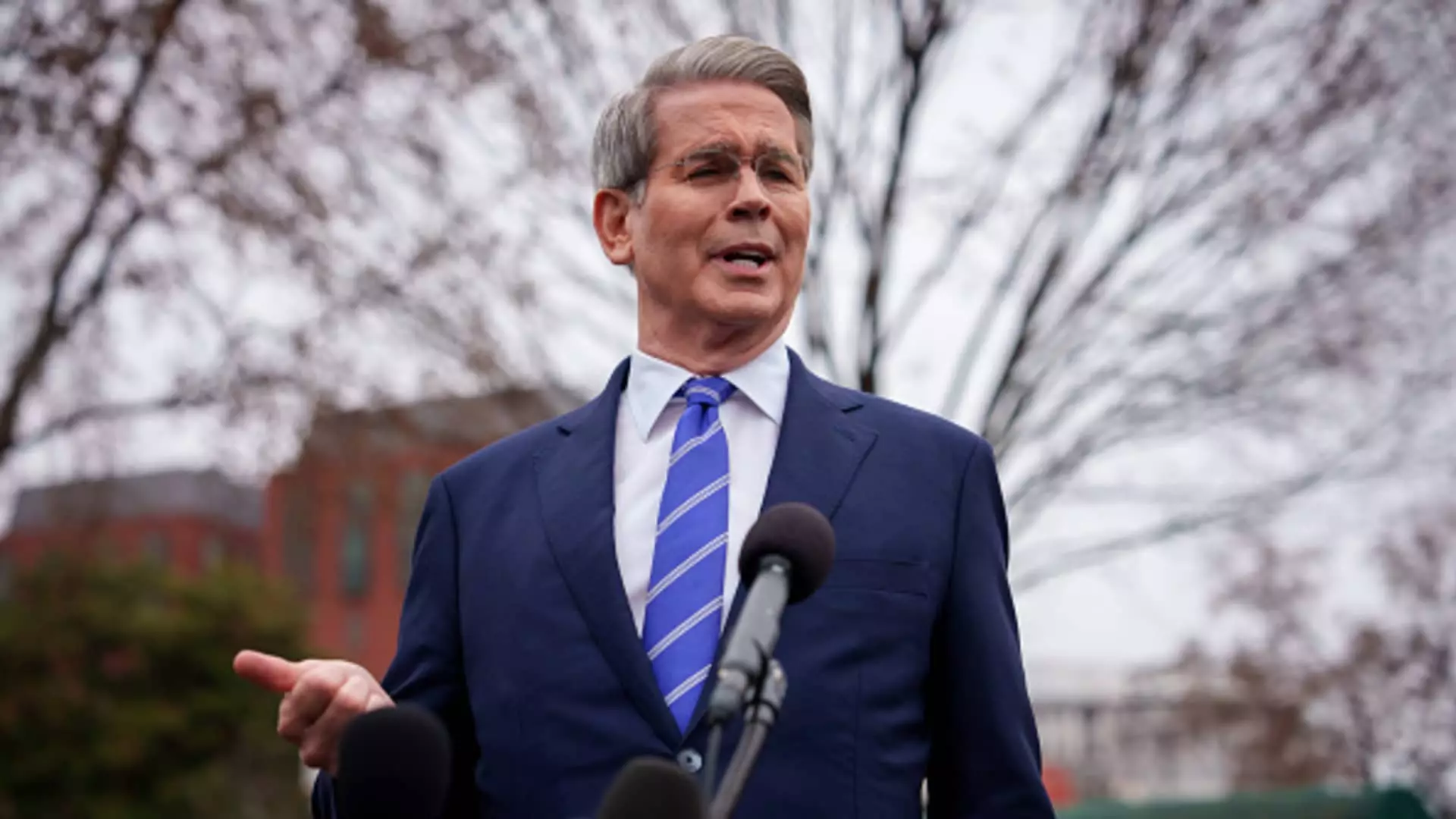Recent statements from Treasury Secretary Scott Bessent have sparked debates regarding the true catalysts behind the plummeting U.S. stock market. While Bessent attempts to steer the conversation away from the protective policies of the Trump administration, it is essential to dissect the core issues at play. The stock market is indeed experiencing a significant downturn, but attributing all of its misfortunes to a mere pullback in key technology stocks oversimplifies a complex economic narrative. The reality is more nuanced and layered than laid out in Bessent’s remarks.
Technology’s Role: A Double-Edged Sword
The tech sector, often deemed the backbone of modern financial markets, is unarguably in a precarious position. The surge of Chinese AI startup DeepSeek, with its groundbreaking language models, serves as a wakeup call for U.S. tech giants. Their scaling effectiveness not only questions the massive investments made by American companies but also highlights a critical vulnerability within the U.S. market. Companies such as Apple, Amazon, and Tesla—the so-called “Magnificent 7″—have been reeling from the impacts of this newfound competition, which has contributed to the tech-heavy Nasdaq’s fall into correction territory.
However, it’s essential to acknowledge that this technological rivalry doesn’t exist in isolation. The broader economic and political landscape is deeply intertwined with these market fluctuations.
The Risky Impact of Trade Policies
Bessent’s dismissal of the effects stemming from President Trump’s aggressive tariff policies raises eyebrows. Recent measures implemented as part of a “reciprocal tariff” strategy could be considered as reckless as they are shortsighted. The imposition of tariffs—whether it is a modest 10% or a steeper increment—inevitably induces volatility in the stock market. Investors are right to react with trepidation when faced with such drastic policy shifts. These protective measures have an undeniable potential to stifle economic growth, encouraging market correction and inducing a recessionary mindset that can cascade through various sectors.
Many investors interpreted the tariff enactment as a bearish omen, and the consequent sell-off only reaffirmed apprehensions about inflation rising once again. Even Secretary Bessent appears poised to disregard these pressing concerns, but can he afford that luxury in today’s unpredictable marketplace?
A Climate of Uncertainty: Investors Seek Stability
In recent weeks, the atmosphere around investment has grown increasingly turbulent. Many are now scrambling for stability, hoping to safeguard their assets from either market backlash or avoidable economic pitfalls. Sentiment among traders has dramatically shifted toward caution, given the interplay of competitive pressures from abroad and unpredictable policy directions at home. The stock market should not be treated as a casino; it requires a measured and strategic approach in a climate where factors including international competition and domestic policy directly impact market trajectories.
Bessent’s attempts to downplay critical interconnected issues surrounding tariffs can lead to misguided confidence. A more holistic understanding of the market’s intricacies will be necessary for investors to navigate through this tumultuous financial environment effectively. As we move forward, acknowledging these complexities could spell the difference between a resilient market and one further exacerbated by reckless policymaking.

